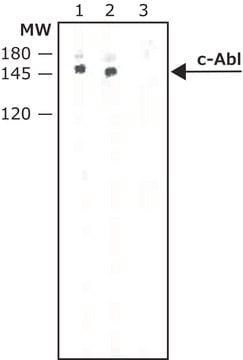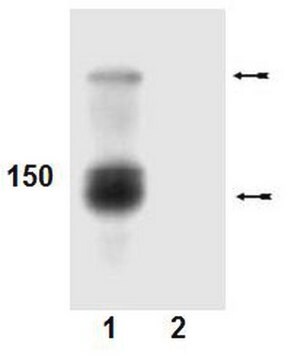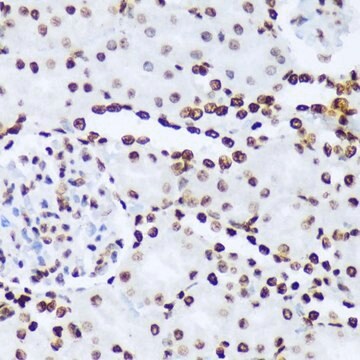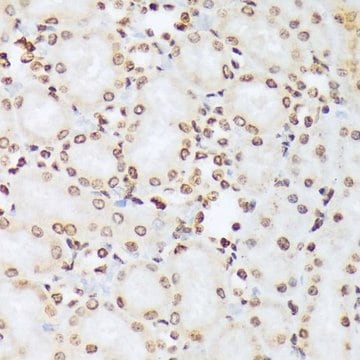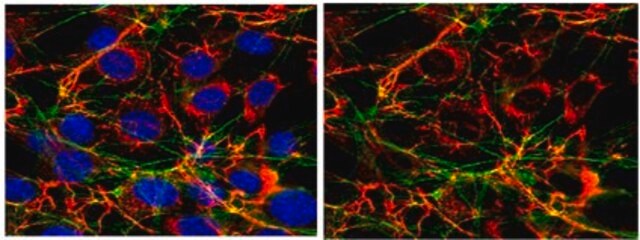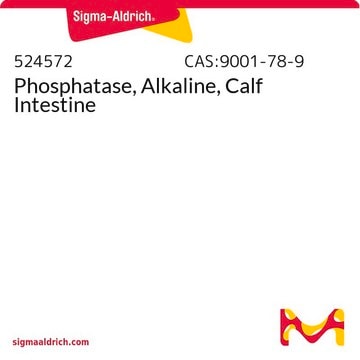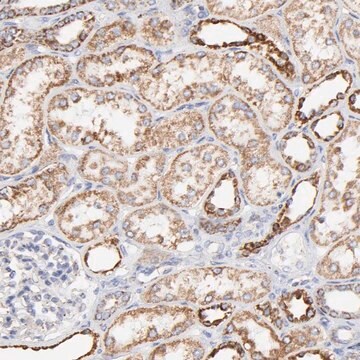C5240
Anti-phospho-c-Abl (pTyr412) antibody produced in rabbit
affinity isolated antibody, buffered aqueous solution
Synonyme(s) :
Anti-ABL, Anti-BCR-ABL, Anti-CHDSKM, Anti-JTK7, Anti-bcr/abl, Anti-c-ABL, Anti-c-ABL1, Anti-p150, Anti-v-abl
About This Item
Produits recommandés
Source biologique
rabbit
Niveau de qualité
Conjugué
unconjugated
Forme d'anticorps
affinity isolated antibody
Type de produit anticorps
primary antibodies
Clone
polyclonal
Forme
buffered aqueous solution
Espèces réactives
human
Technique(s)
western blot: 1:1000 using fibroblasts transfected with oncogenic δSH3-Abl
Numéro d'accès UniProt
Conditions d'expédition
dry ice
Température de stockage
−20°C
Modification post-traductionnelle de la cible
phosphorylation (pTyr412)
Informations sur le gène
human ... ABL1(25)
Description générale
Anti-phospho-c-Abl [pTyr412] specifically recognizes c-Abl phosphorylated at tyrosine 412 (~140-150 kDa). The antibody detects human c-Abl. Mouse c-Abl (100% homology) and rat c-Abl is expected to cross react.
Immunogène
Application
Forme physique
Clause de non-responsabilité
Not finding the right product?
Try our Outil de sélection de produits.
Code de la classe de stockage
10 - Combustible liquids
Classe de danger pour l'eau (WGK)
WGK 1
Point d'éclair (°F)
Not applicable
Point d'éclair (°C)
Not applicable
Certificats d'analyse (COA)
Recherchez un Certificats d'analyse (COA) en saisissant le numéro de lot du produit. Les numéros de lot figurent sur l'étiquette du produit après les mots "Lot" ou "Batch".
Déjà en possession de ce produit ?
Retrouvez la documentation relative aux produits que vous avez récemment achetés dans la Bibliothèque de documents.
Notre équipe de scientifiques dispose d'une expérience dans tous les secteurs de la recherche, notamment en sciences de la vie, science des matériaux, synthèse chimique, chromatographie, analyse et dans de nombreux autres domaines..
Contacter notre Service technique